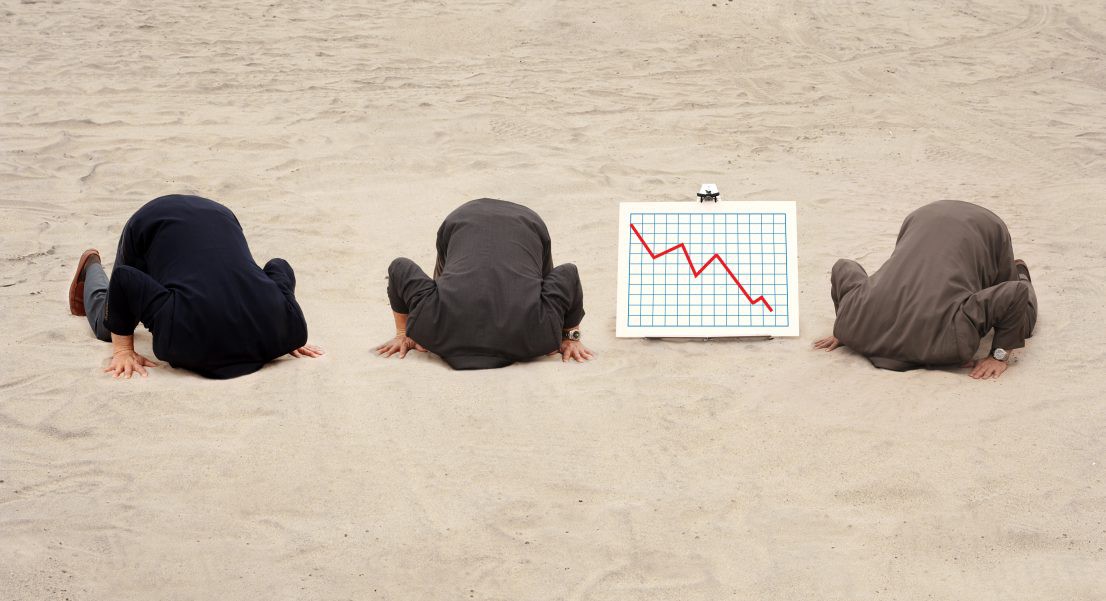We hear about it in the media. In backchannel emails or Skype IM’s, before shelter-in-place orders, around the water cooler at work. It is the code language, is it not, for RIP? You probably experience, in these moments, worry, stress, or anxiety. They are not all the same. But in one of these moments, says Emma Pattee, if asked which you were experiencing, would you know the difference?
Coping with uncertainty, losing your livelihood at a time of national (or I add even global) uncertainty, says Eileen Hoenigman Meyer, makes an already challenging time even more stressful and confusing. Losing our livelihood makes us feel guilty and responsible. However, Eileen says, none of this is on you. “You could not have anticipated this, and this is not your fault.”
Layoffs, or furloughs, come with the expectation of being rehired if more work becomes available or if your employer’s financial condition improves.
A reduction-in-force does not come with such an expectation. It usually means that a specific job, your job, or even your department or entire departments are being eliminated.
When you are left out of these conversations at work, you tend to make up your reality.
The result of a layoff, furlough, and reduction-in-force is the same. You lose your job. You readjust your reality and mindset.
Most of us will agree, once is undoubtedly enough. Why would you, why would anyone ever want to go through this drama again?
Because you need a job, you must work to take into account the cost of living. What amount of money that you need to sustain a “certain standard of living” by affording necessary “cost-of-living expenses” such as housing, food, taxes, college tuition and incidentals, healthcare, ad nauseam. This cost of living ties to your wages.
In this current state of survival, says Maryann Samreth, scarcity and fear incite employers to dispose of their employees. When she thinks of the executives in companies who continue to maintain their full-time salaries, she readjusts her mindset from contempt to curiosity.
These executives, Maryann says, remain financially unscathed by this pandemic. They have the privilege to return to normalcy when this pandemic is over. They are moving, she adds, through this time with ease and will continue to plateau in their lives. There will be no change nor growth or progression. Only a continued mindset of survival, she concludes, where they can tread precisely where they left off.
Is this what caring for and contributing to the life of the next generations is all about? Normalizing the abnormal (it’s still abnormal!) a pervading mood of a nation of “haves” and have-nots?” Where far more Americans, and others, furthermore, globally, see their country sharply divided along economic lines continuing to tick upward. Where most individuals are on the wrong side of that divide, self-absorption is the new normal over a favorable balance of generativity, nurturing the growth of human-friendly organizations, and shepherding the development of a broader community?

How are YOU going to break free of living in cultures where work demands and deserves your undivided allegiance? Where layoffs or furloughs and reduction-in-force in COVID-19, trading labor for money, buying talent instead of developing it, and “employers handle the money, but employees make it,” continues to be a two-sided coin. Codependency of giving and taking in this pandemic and beyond.
People are our greatest asset.
Five words say, Ron Thomas, which is the most meaningless in the corporate lexicon. As usual, he says, “it was followed by incoherent statements about the mission, core values, etc., etc.”
Never allow someone to be your priority while allowing yourself to be their option. — Mark Twain
We live in cultures where work demands and believes it deserves our undivided allegiance. Where leadership talk at us versus with us. Privilege and power are vested in senior management. Leaders and their minion of line managers use efficiency and top-down approaches that draw on standards, procedures, and output metrics such as scorecards and dashboards to regulate organizations and their obligations. Keep a careful eye on costs and double net profits.
Why do we tolerate, maybe even enable, these conditions in which we suffer from a sense of powerlessness, arising from these traumatic events or persistent failures to succeed?
Learned Helplessness

We quickly discover, once a layoff or furlough and reduction-in-force happens, we have no control over what happens. We learn to accept our fate. Rest in Peace translates to merely giving in to submission. Once we do so, we can begin the process of redemption.
- I am being saved from the sin, error, or evil of layoffs or furloughs and reduction-in-force.
- I am regaining or gaining possession of something in exchange for payment or clearing a debt.
- I am beginning the action of buying back my freedom.
We all have days during this pandemic when we are unable to ignore the reality of our situation. We are drained from our change resistance or change fatigue and simply want more of what was “the normal,” not this “new normal.” We see just how far our lives have gone off track. During these moments of clarity, we see, while many others do not, beyond the denial. These addicts may become so affected by this realization that they decide to end their misery. Unfortunately, many of these addicts will continue with business as usual.
Even though most employees or even day workers see how miserable their lives have become, they feel powerless to escape it. They have learned to be helpless. Moreover, it is this feeling of powerlessness that keeps them trapped and prevents them from ever experiencing true happiness. They feel powerless to control their future, so they just accept their current situation no matter how unfavorable it happens to be.
Why Anything Can Be Addictive

Addiction, for most of us, involves taking drugs such as alcohol, nicotine, cocaine, or heroin.
When we learn to live with addiction, we behave as if it is utterly helpless to change this situation or our relationship with our addiction. We become dependent on our addiction to cope with our daily life. It helps us to do so by normalizing the abnormal.
How are layoffs or furloughs and reduction-in-force, any different?
They cause psychological and physical harm. Layoffs or furloughs and reduction-in-force are an addiction in their own right as a remedy to shed costly assets, focus on continuous improvement, and keeping a close eye on costs, doubling net profits.
Senior management is learning to live with this addiction. These leaders are behaving as if it is utterly helpless to change this situation or relationship with their addiction.
Influential members of corporate boards and stockholders, including the culture of billionaire oligarchs, fall well within the definition of enablers, don’t they? These actors continue to become dependent on this addiction to cope with and expand their portfolios in their daily life. It is helping them to do so, by normalizing the abnormal in layoffs and reduction-in-force, like trading labor for money. Buying talent instead of developing it.
Addictive behavior develops from a combination of elements. Such as the social environment we were brought up in. Our emotional, psychological, and spiritual constitution — personality factors, attitudes, expectations, and beliefs. Undoubtedly, working and living in cultures where work demands and deserves our undivided allegiance, is a prime example.
Your Enabler’s Role Is Equally Dysfunctional, Is It Not?

Your leadership, and likely your line managers, who rely on you do not learn how to have an equal, two-sided relationship, and often come to rely on your sacrifices and neediness.
How often have you felt, or are you feeling, extreme difficulty about separating yourself from these enablers because of your own identity in working and living in these cultures centers upon sacrificing yourself for your partner or enabler?
Diagnostic Features

- Is there not a problem with leaders and their line managers uncontrollably engaging in harmful levels of habit-forming behavior that contributes to or leads to layoffs or furloughs and reduction-in-force?
- How often are leaders being forced to neglect or lose interest in activities that do not involve the toxic substance or behavior of layoffs or furloughs and reduction-in-force?
- Are there not relationship difficulties that often include lashing out at people who identify the dependency?
- Is there not an inability to stop using this drug of layoffs or furloughs and reduction-in-force. However, it is causing health problems or personal problems, such as issues with employment or relationships, worry, stress, or anxiety?
- Do leaders not hide behaviors and otherwise exercise secrecy? Leaders and their line managers knowing and refusing to explain injuries that occur or will occur from being under the influence of this addiction with layoffs or furloughs and reduction-in-force.
- Is there increased risk-taking, both to access the substance and activity while using it or while engaging in it?
“Cycle of Codependency

Do the following examples sound familiar?
- Organizations do not make people. People make organizations
- Organizations do not change. People change
- Buying labor instead of developing labor
- Trading labor for money
- Project management is not change management. Neither is change management project management
- “Bad things happen as we stop solving people problems and start solving business problems.”
Codependency does not give a rat’s ass about or consider the quality of our relationships, our engagement in our community, or our physical and emotional well-being.
Codependency does not allow or enable us the time to rethink how we are defining success; discover how to live a truly full life. And one that has a purpose. Or one where we are drawing boundary lines that show respect for our family; or our physical health, emotional and psychological health, and spiritual health.
What Is the True Cost as an Addiction?

The main symptom of any addiction is a problematic pattern of use, which leads to clinically significant impairment or distress. Powerful cravings characterize addiction. Just like other addictions, layoffs or furloughs, and reduction-in-force is a disease with a range of harmful conditions and behaviors.
How are leaders and their architects for layoffs or furloughs and reduction-in-force, unlike any other individuals with a substance use disorder?
They continue using this substance or engaging in addictive behavior associated with layoffs or furloughs and reduction-in-force, even though they might be aware of the harm it can cause or when clear evidence of damage is apparent expressing a desire to quit?
The social and health costs of layoffs or furloughs and reduction-in-force are enormous. How are they less caustic or different from other addictions? Where codependency continues to be a two-sided coin of “give” and“take.”
There is moodiness, relationship problems, absenteeism from work, domestic violence, and bankruptcy.
Health effects include anxiety and depression, insomnia, intestinal disorders, migraine, stress-related disorders, stomach problems, and suicidal thoughts.
How to Cope

We are on the precipice of dark economic times, says Shaun Nielsen. Unemployment claims, he stresses, are at historic highs, with worse predicted to come.
Moreover, Shaun says, you are not your job. “So much of our identity is tied to what we do for money.” How often do you introduce yourself, he adds, as “engineer” or “teacher?” Start casual conversations with, “So, what do you do?”
This optics works for me, as I am sure it does for you when we can take pride in our work. But, as Shaun says, “it’s dangerous when what you do — or don’t do — becomes a proxy for your worth as a human.”
Generative Tension
How are you going to generate a legacy that gives meaning to your life?

Layoffs or furloughs and reduction-in-force are generative tension. They are about the onset, as I refer to elsewhere, generativity chill. The anxiety you experience in these moments, including your readjustments, with threatened losses to making your mark on the world through creating or nurturing things that will outlast you.
Working is supposed to feel good and be rewarding. It should feed our ego, not tear it down. Working ought to help us develop pathways to mindshare that open new ecosystems of innovation, intellectual and emotional capital, and thought equity. Working aids us in developing generative legacies instead of feeling disconnected, uninvolved, and helpless.
Our self-worth does not revolve around our status, paycheck, and prestige because of who employs us and why. The shortest distance between two points, as Lewis Black says, is not a celebrity, or being next to one. “If there is a God, he really doesn’t care about what’s written on your paycheck.”
Moreover, we do not have the time to rethink how we are defining success. Live a truly full life. And one that has a purpose. One where we are drawing boundary lines that show respect for our family, our physical health, emotional and psychological health, and spiritual health.
Looking for a job post layoff or furlough and reduction-in-force is a big challenge to your capacity to adapt, just like the COVID-19 illness is a challenge, or going through this pandemic is a challenge. Job seekers are finding themselves dealing with negative groupthink and likely even a mass depression. Setting expectations is the key to maintaining a sense of hope. You will have to work hard to overcome the repeated rejection that can or will come with an extended job search. Regular exercise and eating right are crucial to maintaining the healthy mind and body you will need to carry you through an arduous job search.
As a job seeker, you will do well to employ creative thinking. In today’s job market in this pandemic, your next job might not be the same as the one from which you were let go. Especially going forward, in function, responsibility, or pay, as you work to get on the other side of this pandemic — Readjusting your reality and mindset and improving your mental resilience, health, and productivity. This optics is the new normal, and beyond. But this may have to be acceptable and can be a positive life change.
Do you need to (yes, you should) vent?
Do so to close friends such as your family, coach or mentor, or a therapist. You are going to feel bad about feeling confused and uncertain about your future. Give yourself the permission and space to take the time you need and do not rush into feeling “okay” with the layoff or furlough or reduction-in-force.
Know that it is normal during these events to let your disappointment and distress turn into a new negative outlook on your life and career. However, if you feed into this conviction, you run the risk of developing a persistently depressed mood or loss of interest in activities, causing significant impairment in your daily life.
You need to regroup and reframe
Take these adverse events or situations, your thoughts, and feelings, and look at them from a different perspective for some positive aspects.
You are not alone in your journey. Being laid off for you, like it is for your colleagues, becomes a time to regroup in your life. Give yourself the consent to reassess your career path. Make sure you are still doing something you are interested in and passionate about doing. You need to consider your longer-term happiness.
Instead of perseverating on, there may not be much you can do about this turmoil right now, channel this thinking and your feelings to help you decide between two job opportunities in the future. For instance, one that keeps you on your current path. Or another that may open the door to a different set of opportunities for you. This layoff or furlough or reduction-in-force is likely your ticket to get you out of your dead-end job you would have stayed in forever had it not occurred.
Do Not Give Up Hope

If you are, or when you do feel intensely down on your luck, you can join free support or skills-building groups in your local community or online, where you learn from others who are going through similar circumstances.
Remember that a layoff or reduction-in-force is no judgment about your abilities, experience, or skills that you brought to your position.
For all those leaders and their minions of line managers out here? I have a message for you, too, about layoffs or furloughs and reduction-in-force.
This pandemic has turned the whole world, inside out, upside down. There’s no going back. Even if we wanted to, we can’t. Just as Thomas Wolfe discovered in his novel, You Can’t Go Home Again. Attempting to relive memories is doomed to failure. We can’t stop the waves with this pandemic, but we can learn to surf.
Normal is dead. Maybe it always has been. Or perhaps it should be, now. There is no normal. As Luvvie Ajayi Jones, says, “Normal packed up its bags and left the keys on the kitchen counter.”
Normalizing the abnormal is not an authentic change nor is not acting, which is a form of action and change in and of itself.
We are in a crisis with generativity versus stagnation. This tension: I am what survives me, is redefining sanity within the context of this pandemic. The human psyche, managing the human side of change central to the mitigation of COVID-19 and crisis management.
If people are your most important assets, why would you get rid of them? — Southwest’s former head of human resources
If your company is the 21st century equivalent of the proverbial buggy-whip industry, says Newsweek staff, “don’t fool yourself — downsizing will only postpone, not prevent, your eventual demise.”
By directing their focus on the consequences of COVID-19, says Justin Bariso, both Bezos and Nadella, are teaching an invaluable lesson to business leaders everywhere:
The time for wishful thinking is over. The sooner you figure out a way to adapt to the effects of the coronavirus, the better the chance your business has to survive.


